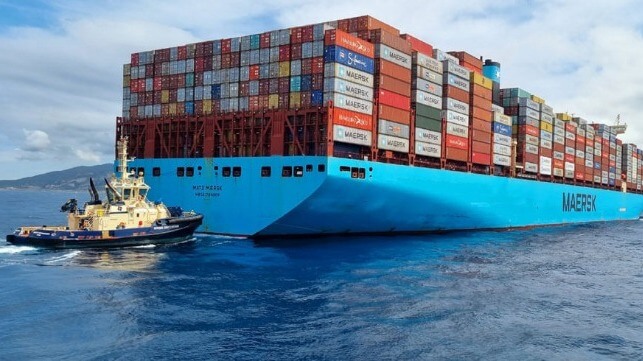Svitzer to Become Standalone Public Company in Demerger from Maersk

Svitzer, one of the leading global providers of towage and marine services, is set to become a standalone company after 45 years of ownership by AP Moller-Maersk. Svitzer’s management is calling it a new chapter as they look to continue their customer-focused operations while Maersk says it is the next step in the company’s Global Integrator strategy which focuses on evolving into an integrated logistics provider.
“Having evaluated the different options for Svitzer, Maersk has concluded that Svitzer as a standalone listed entity is the best option for the company and for long-term value creation for Maersk shareholders, offering them the possibility to participate in the future growth of a global leader within towage with attractive development prospects,” Maersk said in announcing the plans for the demerger. Maersk had been rumored to be exploring the possible sale of Svitzer.
Under the new plan, which will officially be presented the company said around March 22, they are proposing to distribute the shares of Svitzer to the current shareholders of AP Moller-Maersk. The proposed distribution is one share of Svitzer Group, which will be traded on the Nasdaq Copenhagen, for every 500 shares of Maersk. A.P. Moller Holding, the family’s investment company, would hold around 41.5 percent of the new standalone company and is reported to have agreed to a 360-day lockup on its shares.
Established in 1833 as a salvage company, Svitzer entered the towage business in 1870. Maersk became the majority shareholder in 1979 and later took full ownership of the company. Svitzer began its geographic expansion in 1999 and in the early 2000s made acquisitions.
Today, Svitzer has a fleet of 430 vessels with operations in more than 30 countries and more than 140 ports as well as more than 25 oil and gas terminals worldwide. The company reports it has 4,400 employees and each year completes more than 135,000 harbor towage jobs and over 50,000 LNG tanker assists.
Svitzer had revenues of $839 million in 2023, which was up more than eight percent over the prior year. Earnings were reported at $246 million in 2023 (EBITDA) up more than seven percent over 2022.
The company will continue to be headquartered in Copenhagen retaining its current management team. The completion of the demerger requires shareholder approval which Maersk expects to complete in April. The anticipated first day of trading for the shares of Svitzer Group on Nasdaq Copenhagen is April 30, 2024.
Maersk has been making major acquisitions for the landside operations in its logistics strategy while also divesting non-core businesses. Last year, Maersk completed its exit from the energy sector agreeing to divest Maersk Supply Service to its parent company A.P. Moller Holding. That followed the 2017 sale of Maersk Tankers as a standalone business and the following year the sale of Maersk Oil to what is today TotalEnergies. The company also spun off Maersk Drilling to shareholders in 2019, and last year the drilling company was merged into Noble Corporation.
No comments:
Post a Comment